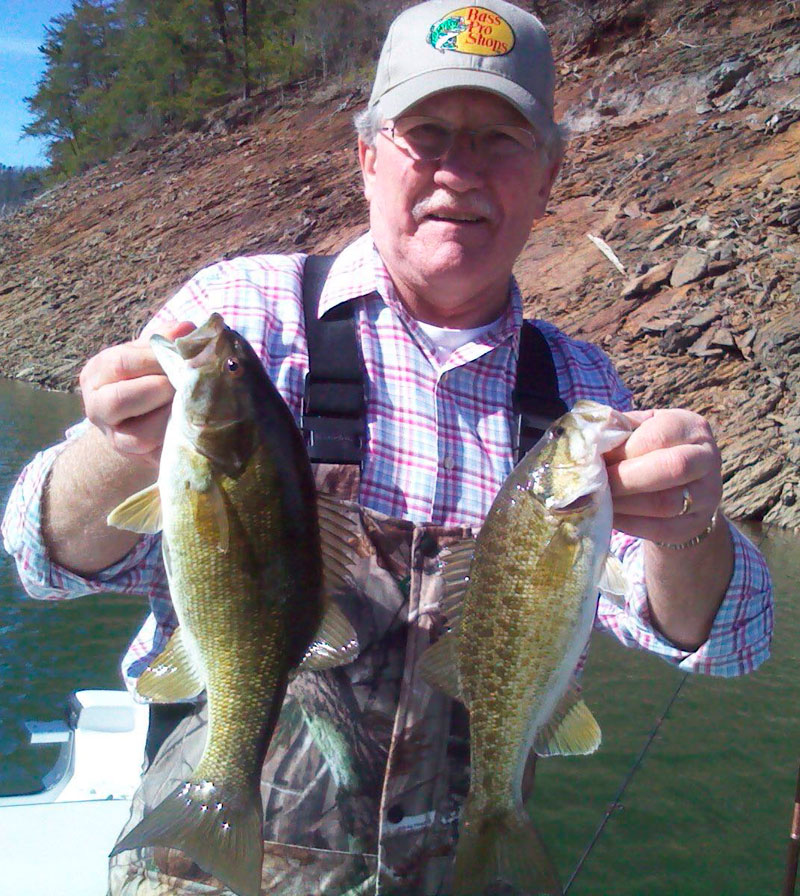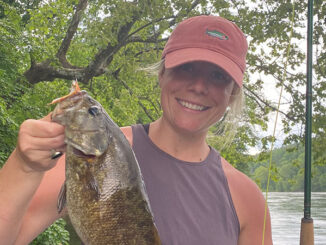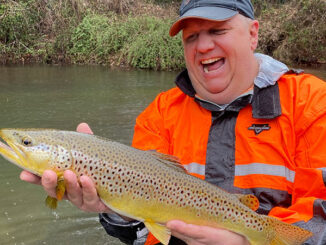
Smallmouth bass on Fontana Lake
During February, a balmy day or two arrives that triggers smallmouth bass fishing on Fontana Lake in North Carolina’s extreme southwestern corner.
The warm respite will prompt smallies to leave their deep or suspended haunts for shallower waters in search of potential spawning grounds.
“This movement puts the fish within reach of fishermen tossing light jigs and jerkbaits,” said James McManus of 153 Charters.
Smallmouth and spotted bass are distributed throughout 11,700-acre Fontana. But McManus (153charters@gmail.com) said fishermen have a better chance of catching more smallies on the lower end of the lake. But mixed bags of the two species have become commonplace wherever anglers fish.
For smallies, McManus targets broken rock, pebbly points, outcrops and small boulders.
“Some sort of rock — and it changes day to day — is what fishermen need to key on,” said McManus, whose favorite places include main-lake points between Points 4 and 5 and the mouths of Hazel and Chambers creeks.
Winter drawdown at Fontana exposes plenty of rocky places, but rains could reduce the amount of exposure.
Smallies will bite a variety of lures this month
Given a gentle breeze, McManus works down banks, hitting all the rocks along the way with small jigs, crankbaits, downsized Alabama rigs and drop-shot worms.
“The most important thing is finding a concentration of fish, so keep moving,” he said.
McManus mostly employs light spinning tackle and 6- to 10-pound line in Fontana’s clear waters.
Even snowy days can result in good fishing. Poor fishing usually happens after a cold rain or days following a cold front.
“My strategy then is to follow creeks towards their backs and look for suspended schools of smallies that may be up in the water column or hunkered down on the bottom,” McManus said.
This dispersion of fish at the bottom or top of the water column explains why fishing is so difficult under these conditions. Fishermen respond by dropping ice jigs, small spoons or swimbaits in front of the schooling fish. Fishing live bait is also a good option.
McManus follows the golden rule for winter fishing. The colder the weather, the slower he retrieves his baits, often using stop-and-pause cadences, especially when he’s fishing a crankbait.
McManus said the recent invasion of blueback herring into Fontana may influence the fishing.
“Like any environmental change, the presence of herring will change the habits of the fish population,” he said. “All of us locals are having to relearn what used to be pretty constant tactics year to year. You need to keep an open mind, use your electronics and try new baits.”
McManus urges fishermen to release smallmouth they catch and save the overly abundant spots for the frying pan.
“Spotted bass are taking over some of our lake, so I try not to keep any smallmouth,” he said.




Be the first to comment